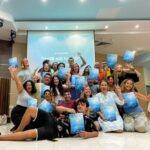Volunteering has long been a cornerstone of Maltese society—woven into the cultural and social fabric of the islands. From local festas to youth development programmes, volunteers have powered initiatives that bring people together and address real community needs.
Yet, as Maltese society evolves, so too does the nature of volunteering. Rising work and family responsibilities, shifting cultural norms, and the increasing pace of life have led to a noticeable decline in volunteer engagement. This poses real challenges for many voluntary organisations striving to continue their mission with fewer resources.
A Diverse and Dynamic Sector
Malta’s voluntary sector is rich in diversity. Religious and philanthropic organisations such as Caritas Malta have long provided support to vulnerable communities—offering addiction recovery programmes, mental health care, and family services. In 2022 alone, Caritas assisted over 491 families affected by addiction and offered residential care to 233 individuals.
Art, culture, and sport also rely heavily on voluntary effort. From brass bands that bring life to village celebrations, to sports clubs, youth groups like the Malta Scout Association, and community-run media channels—volunteers are the unsung heroes ensuring continuity, identity, and growth.
The Challenges Ahead
Despite this vibrant history, volunteer participation is in decline. Younger generations, in particular, face greater time constraints, and organisations are finding it harder to recruit and retain committed volunteers. Moreover, with over 1,800 registered voluntary organisations in Malta, the sector is experiencing fragmentation. In many cases, entities working in similar fields compete for limited resources instead of collaborating.
Recognising these challenges, the Commissioner for Voluntary Organisations and the Malta Council for the Voluntary Sector (MCVS) have encouraged consolidation and strategic partnerships. Through funding schemes such as SIS and VOPS, over €1 million was invested in 87 projects in 2024, covering everything from sustainability to the arts and inclusion.
Investing in the Future of Volunteering
Efforts to strengthen the sector are expanding beyond funding. Educational institutions are stepping in to cultivate a new generation of engaged citizens. The University of Malta’s, together with MCVS, Certificate in Volunteering Studies, launched in 2024, equips students with practical knowledge and skills to volunteer effectively and ethically. Similarly, MCAST’s CSR initiative, introduced in 2021, requires students to contribute 20 voluntary hours annually, totalling over 8,500 hours of community service each academic year.
Looking Forward
To reenergise Malta’s volunteering landscape, a multi-faceted approach is essential. Introspective assessments can help organisations find areas of overlap and potential cooperation. By integrating resources and efforts, organisations can cut down on duplication, increase efficiency, and make a stronger case for volunteer participation. The potential benefits of strategic collaborations are exemplified by the Be Positive Bipolar Self-help Group’s affiliation with the Richmond Foundation.
Campaigns to raise awareness of the tangible benefits of volunteering can also reignite enthusiasm and increase community involvement. By showcasing success stories, recognising volunteer achievements, and demonstrating the broader societal advantages of volunteering, people can be inspired to give their time and skills.
Volunteering remains central to Maltese culture, embodying the ideals of generosity, community, and solidarity. Despite challenges, the sector can be revitalised through the combined efforts of institutions, organisations, and individuals. By promoting education, fostering collaboration, and highlighting the inherent benefits of volunteering, Malta can ensure the continuation and growth of its proud legacy of community service.
The potential is vast. By nurturing the spirit of service and adapting to today’s realities, Malta can continue to build a future grounded in generosity, solidarity, and shared purpose.
The Institute’s Role
The St. Francis de Sales Institute, part of the Salesians of Don Bosco in Malta, is actively contributing to this vital conversation. In line with our mission to support community engagement and lifelong learning, we are organising the seminar Volunteering in Malta – Embracing the Changing Times, partly sponsored by APS Bank. This event will bring together diverse voices from the sector to reflect, share, and explore practical solutions for the future of volunteering. As part of our ongoing commitment to strengthening the voluntary sector, we invite you to join us in this important dialogue. Together, we can shape the future of volunteering in Malta and create lasting, positive change across our communities.







